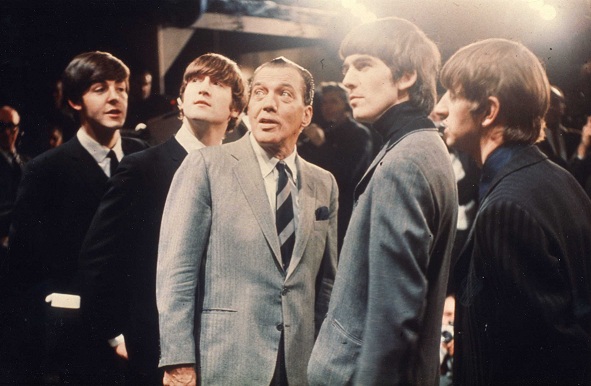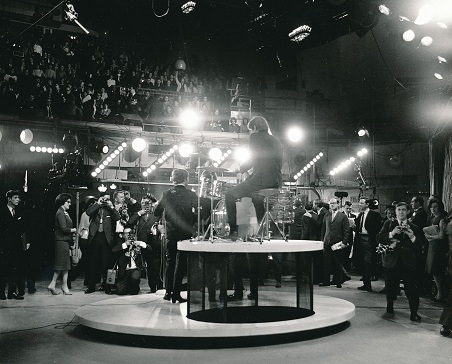
By 1964, audiences were progressively becoming more open-minded. The country had experienced the rise of Elvis Presley and rock & roll had become far more ingrained in our culture. President Kennedy’s death in 1963 left a strong sense of despair in the air and Americans needed something big to lift their spirits.
The Beatles American TV debut on The Ed Sullivan Show could not have happened at a more perfect time. Not only did it mark the beginning of a new generation, but it brought back happiness and hope to millions of households. There were many great artists emerging at the same time as The Beatles, but the Fab Four were at a different level. In fact, it was hard not to be swept up in Beatlemania.
Following The Beatles’ American debut, a generation of boys began to emulate the band with their haircuts and style. Many of them took it so seriously that they became part of bands that would too become famous and later confessed to have been inspired by the Fab Four, such as Elvis Costello (Elvis Costello & The Attractions) and Davy Jones (The Monkees), who actually appeared on Ed Sullivan as part of the cast of “Oliver!” the same night as the Beatles Ed Sullivan Show 1964. Not to mention that The Beatles initiated the birth of the so-called British Invasion, which gave way to other British rock n’ roll groups to find success in the U.S., including The Rolling Stones, Gerry & The Pacemakers and The Animals.

It has now been 48 years since that historic first appearance of the Beatles on The Ed Sullivan Show and people still reminisce about it with excitement and talk about it with such passion as if it happened yesterday. In aggregate, the 4 Ed Sullivan Show Beatles appearances were watched by a quarter of a billion viewers! The first two shows to this day continue to be the highest viewed regularly scheduled television programs of all time.
There is no question then that these shows will always remain in the hearts and minds of anyone who saw them. The Beatles performances on Ed Sullivan will go down as a turning point, which not only affected music history but also American history.
